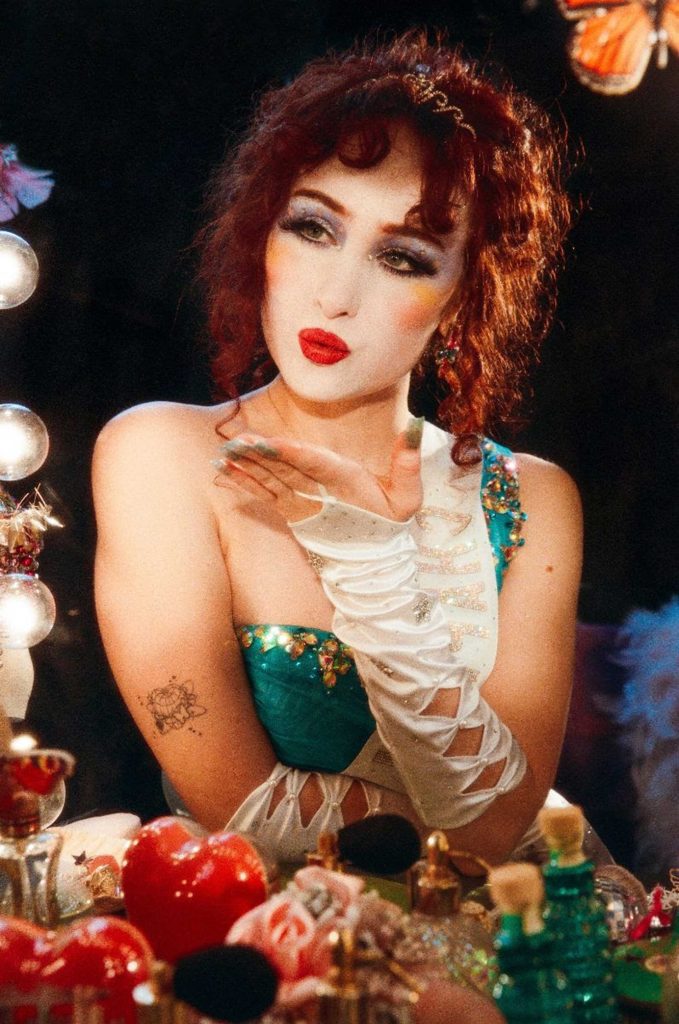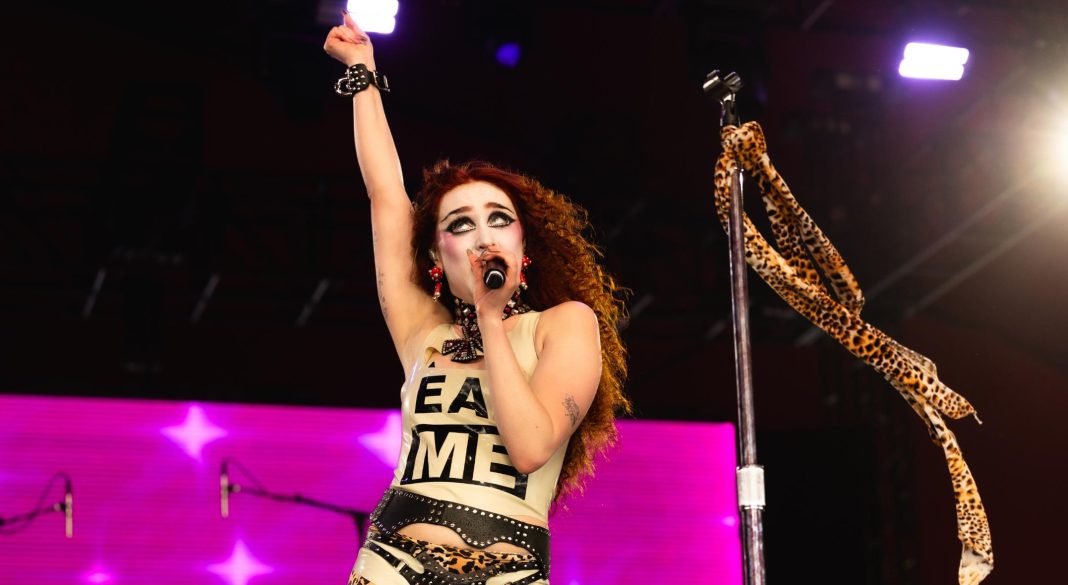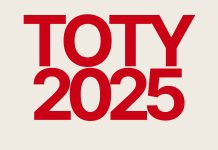At San Francisco’s Outside Lands festival last week, executives estimated that 50,000 of the festival’s 75,000 attendees showed up to watch the same artist. A few weeks previously, that performer also drew the ‘largest ever’ audience for a Lollapalooza set, hastily upgraded to cater to popular demand. Released nearly a year ago, her album has just topped the UK Albums Chart, and come in at number two on the Billboard album chart under Taylor Swift. Seven of her singles are sitting pretty on the Hot 100 singles chart, and at least three are currently soundtracking your favourite TikTok trend. She has been announced as a performer at the VMAS (where she’s nominated for Best New Artist), and has been acknowledged by everyone from Hayley Williams and Rihanna to Adele and Kamala Harris. Even the famously discerning Azealia Banks has labelled her the real deal, stating that she is “singlehandedly making white women cool again.”

Needless to say, it’s been a pretty good month — nay year — for Chappell Roan. But who exactly is she, and how did she break through the public consciousness to become everybody’s new favourite star?
Adele reveals all she’s done this week is discover Chappell Roan:
— Pop Base (@PopBase) August 14, 2024
“I went down a rabbit hole on Monday all day long. She is spectacular […] she has like seven f*cking brilliant songs. I think she’s absolutely amazing, I’m very excited for her.”
pic.twitter.com/Dd1dzaulJe
📸| Queer ally icon Hayley Williams rocks Chappell Roan’s 'Midwest Princess' hat in new photo. pic.twitter.com/UWd16KsFtW
— Chappell Roan Now (@ChappellRoanNow) July 23, 2024
chappell roan’s rise need to be put in history books pic.twitter.com/hEoisLrBwk
— jess (@jessinomenon) August 15, 2024
Let’s start at the beginning. Born Kayleigh Rose Amstutz in 1998, Roan was raised in a conservative church-going Missourian family, quietly intrigued by the subversive, chaotic pop videos of Kesha, Lady Gaga and Katy Perry. Taking piano lessons of her own from the age of 12, she (unsuccessfully) auditioned for America’s Got Talent at the age of 14, but began uploading covers to YouTube, adopting her stage name in 2016 – a tribute to her late grandfather, Dennis Chappell, and his favourite song, ‘The Strawberry Roan’ by Marty Robbins.
Having caught the attention of a label, Roan moved from her family’s home to LA in 2017, releasing an EP and supporting the likes of Vance Joy and Declan McKenna. In 2020, she began working with Dan Nigro, a producer fast becoming known for his work with Olivia Rodrigo. Thrown headfirst into the city’s nightlife, Chappell allowed herself to fully embrace her queerness, writing ‘Pink Pony Club’ about the freedom of her first visit to a gay club.
Shortly after the song was released, however, Chappell Roan was dropped by Atlantic, citing underwhelming sales performance. Back in her hometown, she worked at a coffee kiosk and schemed about her big Hollywood return. She maintained her working partnership with Nigro, and signed with Amusement, his imprint at Island Records. In March 2022, she released ‘Naked in Manhattan’, booked a support slot for Olivia Rodrigo’s ‘Sour’ tour, and all the frustrations and awakenings and dreams of her early twenties began to coalesce into what would become ‘The Rise and Fall of a Midwest Princess’, her debut album. The rest, as they say, is herstory.
I was crying as I walked on stage at @lollapalooza because of the overwhelm of support. Thank you thank you thank you 🩵🩷 I will remember this forever pic.twitter.com/JNeMF4ZTXC
— Chappell Roan (@ChappellRoan) August 3, 2024
At this point, it is worth acknowledging that she’s already amassed enough great singles to support the hype. Chappell Roan’s songs are good. Very good in fact — maximalist, theatrical synth-pop hits which recall the pop music of the early social media era, where everyone was having fun, wearing outlandish outfits and oversharing with silly filters on. Roan was right to hold out for that working partnership with Dan Nigro — a producer who knows how to allow space for a vocalists character to shine, Roan’s songs glitter with lyrical detail and deprecation, the haphazard relationships and lustful gazes that mark one’s emotional and sexual awakening.
She’s an all-rounder too. Where some stars struggle to translate their TikTok virality or confessional intimacy into an arresting live experience, Roan has shown buckets of charisma and vocal strength through both her appearance on NPR’s Tiny Desk and her busy summer of festivals, encouraging fans to be part of the show and not take themselves too seriously.
“The most undeniable aspect of her stardom is her stage presence”, says Rachel R. Carroll, an LA-based music journalist who has been following Roan’s career since 2020. “Even when I saw her live in 2022 without a full album to her name, the atmosphere was beyond electric. I still remember the flawless rendition of Alanis Morrissette’s ‘You Oughta Know’ from that night: the self-assurance and star power was becoming of someone who had been touring arenas and stadiums for years”.
While Carroll notes that a whole constellation of social factors have aligned perfectly for Roan’s 2024 success— “nepo baby discourse has made the idea of a self-made career feel more refreshing; the first half of the year was saturated with airy, folk songs which left a desire for, to quote Roan herself, “a song with a fucking beat” — she also recognises that Roan represents a feeling of queer defiance, creating concerts that feel like celebratory havens.
“Increasingly-targeted legal attacks on the rights of LGBTQ folks have sparked a fierce need for queer community spaces,” says Carroll. “A song like ‘Pink Pony Club’ taps effortlessly into the angst and melancholy of feeling that you don’t belong, but instead of the muted ballads of yearning that dominated the pandemic, she’s chosen instead to lean into explosive guitar solos and raucous joy.”
Around two years ago, I had only just started freelancing, but I tried my hardest to pitch coverage of a @ChappellRoan show. Tickets were $17 after fees; the venue fit 500 people. [🧵, 1/12] pic.twitter.com/ORILnQy9M7
— Rachel R. Carroll (@RachelRCarroll) August 15, 2024
chappell roan opened her gov ball set by projecting a giant "am i gay" quiz onto the jumbotron, popped out of an apple in full green body paint as the statue of liberty, told the white house to go fuck themselves, and played a new song, and this is why she is the moment
— jaime (@triptojaimeland) June 9, 2024
never felt this high performing in the big apple as lady liberty herself..thank u times a million @govballnyc for everything & the unbelievable support from my team & the community surrounding me. i said what i meant, & meant what i said on stage.🗽 with justice & liberty for ALL pic.twitter.com/hCZT4DAHK3
— Chappell Roan (@ChappellRoan) June 11, 2024
Whilst Roan has plenty to offer besides her sexuality, her upfront attitude is intrinsic to her current success. Like Billie Eilish, MUNA and Renee Rapp alongside her, her sapphic songwriting marks an important shift in mainstream music, where girl-on-girl content feels honest and empowering rather than a coyly-coded bid for male titillation. Roan has also been sincere in her frequent references to drag, celebrating queer history through her onstage outfits and her choice of support acts. From her take on the Statue of Liberty at Governors Ball to her Lucha Libre wrestling look at Lollapalooza, everything is delivered with care, campness and heart, setting her fans up for all kinds of playful cosplay opportunities. Throw in a signature dance routine — the YMCA-esque choreography for ‘Hot To Go’ — and you’re absolutely golden in terms of audience engagement, creating a movement that feels larger than yourself.
Of course, a rise this meteoric doesn’t come without its concerns. Roan has already been vocal about how disorientating sudden fame can feel, and how she is already having to contend with invasive behaviour from fans who have taken their affections too far. Gatekeeping factions have emerged between mainstream audiences and queer listeners who have been there since the beginning, wanting to protect their safe space whilst also recognising that their midwestern princess is no longer solely theirs. In the coming months, Roan will be gearing up to release new music, and will have to contend with the pressure to match her previous success, to stay fresh and relevant without abandoning that special quirky X-factor that has put her where she is.
lots of people saying chappell roan came out of nowhere but my sister has been working. i saw her two years ago at the bowery ballroom with a few hundred people and it was instantly one of the best concerts i’d ever been to pic.twitter.com/e6quyfG6Y3
— matt (@mattxiv) April 16, 2024
Chappell Roan reflects on her life in new video:
— Pop Crave (@PopCrave) June 22, 2024
“the pop girls that you and I have loved our whole lives or like have been f*cking stans of in the past two or three years, a lot of them have reached out and are like so supportive and girls' girls.” pic.twitter.com/jXl7mHJp7R
For our money though, we’re not too worried about how Chappell will rise to the creative challenge. If 2024 has shown us anything, it’s that there is an enormous appetite for women who aren’t afraid to show their working — Sabrina, Charli, Tinashe and Megan have all had huge summers off the back of second-chance breakthroughs, reaping the rewards of long-term growth. For kids who crave artists of distinct character, it’s no wonder that Chappell is being grabbed with both hands, another newcomer toeing the perfect line between pop aspiration and reality.
“It’s not a revolutionary observation to say that relatability is the most valuable currency in today’s music industry,” says Rachel. “With that in mind, maybe Roan’s rise isn’t that shocking at all. Maybe the story of a queer woman from a small town in middle America finding freedom in self-expression strikes a chord with more people than industry executives might have guessed.”






